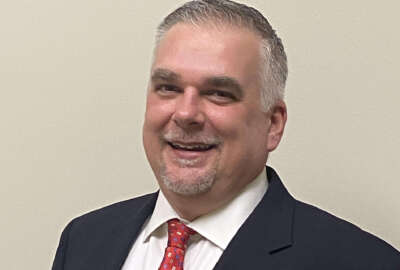The healthcare claims process
Tom Romeo, president of MAXIMUS Federal explains how the appeals process works when a healthcare claim is rejected. September 3, 2013
wfedstaff | April 17, 2015 5:28 pm
September 3, 2013 — This week’s “Federal Tech Talk” takes a look at one aspect of the claims process that nobody wants to talk about — the appeals process.
We speak with Tom Romeo, the President of MAXIMUS Federal Services.
The interview starts by setting the stage.
There have been many publicized reports of the backlog of claims for The Department of Veteran’s Affairs.
There are reports that there is backlog of 773,000 claims, with 480,000 over 125 days.
Tom Romeo points out whenever a claim gets rejected, a complex appeal process can be triggered.
The appeals process is detailed.
Some systems are designed to handle a normal flow of appeals in a timely manner.
When this process sees a spike, some systems freeze.
A properly designed appeals processing system should take into account application variations due to a bad economy, budget constraints, and political issues.
When it comes to a dispute, MAXIMUS Federal has put together over 500 subject matter experts in order to sift through the validity of each claim.
Included are nurses, physicians, attorneys, as well as medical directors and pharmaceutical specialists.
If improved outcomes and reduced costs is the goal of the current administration, an effective appeals process must be able to render an impartial decision.
Copyright © 2024 Federal News Network. All rights reserved. This website is not intended for users located within the European Economic Area.







